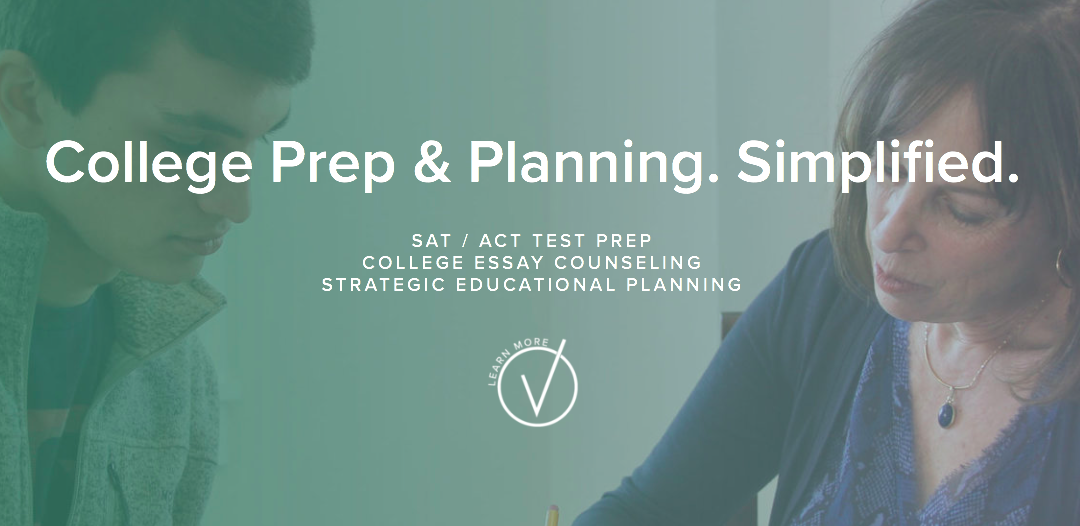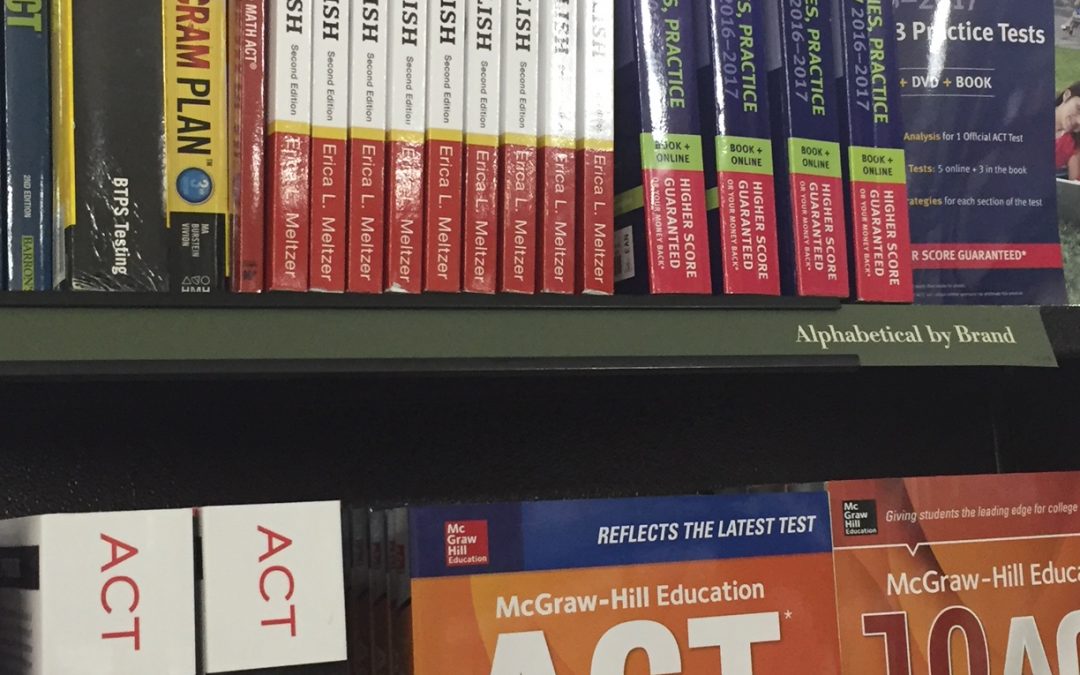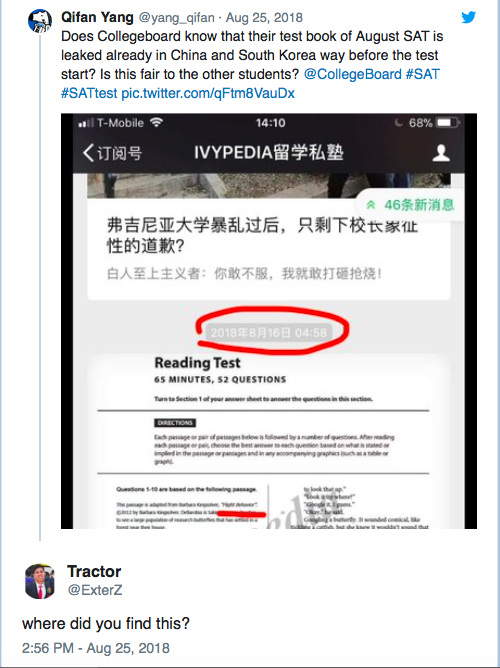
by Erica L. Meltzer | Feb 9, 2019 | Blog, Issues in Education
Over the last year or so, an education reporter named Emily Hanford has published a series of exceedingly important articles about the state of phonics instruction (or rather the lack thereof) in American schools. The most in-depth piece appeared on the American Public Media project website, but what are effectively condensed versions of it have also run on NPR and the NY Times op-ed page.
If you have any interest in how reading gets taught, I highly recommend taking the time for the full-length piece in APM: it’s eye-opening and fairly disquieting. While it reiterates a number of important findings regarding the importance of phonics, its originality lies in the fact that Hanford takes on the uneasy truce between phonics and whole language that supposedly put an end to the reading wars of the 1980s and ‘90s, and points out that so-called “balanced literacy” programs often exist in name only.
In principle, this approach recognizes that both development of sound-letter relationships and consistent exposure to high-quality literature are necessary ingredients in helping students become proficient readers. What Hanford does, however, is expose just how vast a chasm exists between theory and reality. In many schools, phonics is largely neglected, or even ignored entirely, while discredited and ineffective whole-language approaches continue to dominate. (more…)

by Erica L. Meltzer | Feb 5, 2019 | Blog, Tutor Interviews
Bio
Andrea Kay McFarland is the president and founder of Kay Tutoring. She attended Yale for her B.A. in History and graduated in 2005. A Minnesota native, she also has a Master’s in Education from the University of Minnesota. Starting out as a volunteer, Andrea discovered her passion for education and tutoring in 2000. Her professional tutoring career began in 2006, when she began providing formal academic and test prep services.
While she is incredibly invested in helping her students achieve academic success, Andrea and her tutors strive to make personal connections with all of their students via their interests, realizing that each one is more than just a letter grade or a test score.As an interviewer for Yale University, Andrea has also seen the other side of the college application process and is able to bring her wealth of experience to helping students prepare for interviews and write standout admissions essays.
Andrea lives with her husband, daughter and dog in Plymouth, Minnesota. She named Kay Tutoring after her maiden name, “Kay.”
(more…)

by Erica L. Meltzer | Dec 15, 2018 | The New SAT
On her blog, Diane Ravitch recently published a link to a very important article (“Does College Board Deserve Public Subsidies?”) by Richard Phelps of Nonpartisan Education Review.
The article, which takes as its starting point the question of what role taxpayer funds should play in supporting a nominally non-profit private organization, goes far beyond what its rather dry, technocratic title would seem to imply. In fact, the implications are so head-spinning that I actually had to read the piece several times to absorb it in full. It pulls together a lot of the threads I’ve been attempting to trace over the last couple of years, and provides a plausible answer to the question of how the College Board has continued to bounce back from scandal after scandal in a way that most other organizations in its position could not. (more…)

by Lisa Dzialo | Dec 5, 2018 | Tutor Interviews
Bio
Jennifer graduated from Emory University with a BA in English and MAT in Secondary Language Arts Teaching. She began her career as a high school English teacher in 2001. After three years, she pursued an MBA from the University of Georgia, concentrating in finance and entrepreneurship. She then worked as a financial analyst for CSX Transportation.
In 2010 she returned to the education field, which is her true passion. After relocating to California in 2011, Jennifer began her career as an educator in the private sector. Since then, she has worked as an English tutor, college counselor, and SAT instructor for various companies, culminating in a position as the director of a large tutoring center in the East Bay. These experiences prepared and inspired her to open a tutoring center of her own. (more…)

by Erica L. Meltzer | Nov 13, 2018 | College Essays
image © Antonio Guillem, Shutterstock
Let’s start this post with a short pop quiz.
Which of the following options would have been most likely to appear on the vocabulary section of the old SAT?
A. lateritious
B. petrichor
C. ultracrepidarian
D. discreet
E. absquatulate
If your only experience is with the new test, or if you’ve encountered articles discussing the SAT redesign, it’s probably safe to assume you’ve heard a thing or two about all those “obscure” words that were removed from the exam in order to make it more “relevant” and aligned with “what students are doing in school” (which is… what exactly?) (more…)

by Erica L. Meltzer | Nov 2, 2018 | Blog, Tutor Interviews
Vince Kotchian grew up in small-town Connecticut and completed the honors program at Boston College, graduating with a B.A. in English Literature. Though he loved the intellectual climate of Boston, it eventually dawned on him that life would be much better without Boston’s physical climate (long, gray winters and muggy summers)! He moved to San Diego in 2007, and he’s been working full-time as a test-prep tutor and author ever since. When a student texts him that she aced the test or got into her reach school, he still literally jumps up and down and grins.
In his spare time, he likes traveling using miles and points (next trips are Spain and Japan), reading fiction (favorite authors too numerous to list but include Haruki Murakami, Karl Ove Knausgaard, and Philip Pullman), watching The Great British Bake-Off (and sometimes actually baking things), hiking and camping, and rooting for the Red Sox and Patriots. He lives in the Kensington neighborhood with his hilarious wife and their crazy cat.
Vince tutors the SAT, ACT, and GRE (and teaches classes).
He meets with students in his Sorrento Valley office or online.
(more…)

by Erica L. Meltzer | Oct 29, 2018 | Blog, The New SAT
Image credit: Essayontime.com.au
The SAT and ACT have released their scores for the class of 2018, accompanied by the predictable wailing and gnashing of teeth about persistently low levels of STEM achievement.
As Nick Anderson of the Washington Post reports:
Forty-nine percent of students in this year’s graduating class who took the SAT received a math score indicating they had a strong chance [75%] of earning at least a C in a college-level math class, according to data made public Thursday. That was significantly lower than on the reading and writing portion of the tests: 70 percent of SAT-takers reached a similar benchmark in that area.
What the article quite remarkably fails to mention is that the benchmark verbal score, 480, is a full 50 points lower than that for math. Given the discrepancy, it is entirely unsurprising that fewer students met the benchmark in math.
Let’s try some basic — and I do mean basic — critical thinking with statistics, shall we?
To understand what a 480 verbal score on the redesigned SAT actually means, consider that it translates into about 430 on the pre-2016 exam, which in turn translates into about a 350 (!) on the pre-1995 SAT.
This is not “college ready” in any meaningful sense of the term. In my experience, students scoring in this range typically struggle to do things such as identify when a statement is a sentence, or grasp the concept that texts are making arguments as opposed to “just saying stuff.” But to reiterate one of my favorite points, this is in part why the SAT was changed: the decline in reading/writing scores was becoming embarrassing. And if you can’t change the students, the only other option is to change the test, and the scoring system along with it. (more…)

by Erica L. Meltzer | Oct 20, 2018 | Blog, College Essays
Image ©Nickshot, Adobe Stock
Note, January 2022: This post was written in 2018, before the start of the Covid-19 pandemic. Obviously, many things have changed since then, not least the amount of psychological pressure that many high school students have experienced. Clearly, some of the boundaries and expectations surrounding acceptable/advisable topics for admissions essays have shifted, and applicants undoubtedly have more leeway in discussing mental-health issues than they did in the past. That said, I would still caution against making this subject the exclusive focus of your essay(s). If it happens to be relevant—and it very well might be, given the events of the last couple of years— then you should focus on discussing it in a mature way that conveys qualities such as empathy and resilience, and that demonstrates your ability to reflect insightfully on what may have been very difficult situations.
As regular readers of my blog may know, I periodically trawl the forums over at College Confidential to see what’s trending. Recently, I’ve noticed a concerning uptick in the number of students asking whether it’s appropriate for them to write about mental health issues, most frequently ADD and/or anxiety, in their college applications.
So the short answer: don’t do it.
The slightly longer version:
If you’re concerned about a drop in grades or an inconsistent transcript, talk to your guidance counselor. If these types of issues are addressed, the GC’s letter is the most appropriate place for them. If, for any reason, the GC is unable/unwilling to discuss them and the issues had a significant impact on your performance in school that unequivocally requires explanation, you can put a brief, matter of fact note in the “is there any additional information you’d like us to know?” section, but think very carefully about how you present it. Do not write your main essay about the issue. (more…)

by Erica L. Meltzer | Oct 13, 2018 | Blog, SAT vs. ACT
Image © Antonioguillem, Adobe Stock
The notion that the ACT is a curriculum-based test is one of those hoary old ideas that, like so-called “obscure words” or the “guessing penalty” on the old SAT, has apparently now achieved zombie status. In fact, I confess I thought it had more or less disappeared into the ether until I encountered it on Instagram (yes, Instagram!) of all places. And by a test-prep company no less. That made me realize it wasn’t nearly as gone as I thought. Hence this post.
The confusion stems in large part from the fact that way back, the ACT was originally designed to be aligned with a generic high school curriculum—“originally” meaning “in the 1950s.” At that point, the exam did actually test some pieces of specific factual knowledge. In the late 1980s, however, the original Social Studies and Science tests were replaced with the current Reading and Scientific Reasoning tests and, presumably recognizing that students’ exposure to specific topics varied dramatically as well as wanting to compete with the SAT, the ACT moved towards testing more general reasoning abilities. (more…)

by Erica L. Meltzer | Oct 3, 2018 | Blog, Tutor Interviews
I’m happy to introduce a new series for this blog: each month, I’ll be posting a short interview with a different tutor. While I no longer tutor myself, I still get asked for recommendations of tutors who use Critical Reader books/methods, and so I’ve decided to introduce readers to these people directly. The first installment, below, is with reading and writing specialist Valerie Erde. Valerie student-taught with me for several months, and her students have consistently achieved outstanding results on both the SAT and the ACT. She recently founded her own company, Veridian Prep.
Tell us about Veridian Prep.
VeridianPrep is a Greenwich, CT and NYC-based test prep, tutoring, and college advisory company that prides itself on a small, but highly experienced, team of subject experts that provides personalized, evidence-based, and structured instruction and guidance to get measurable results for our students and families. We believe that excellent diagnostics, high-quality instruction and materials, and individualized attention have been the keys to our students’ successes.
(more…)

by Erica L. Meltzer | Sep 15, 2018 | Uncategorized
Summer SAT prep has become a rite of passage of sorts for rising juniors, but once school starts again, the timeline can get a little fuzzy. What if that first set of scores, from a test in September or October, seems pretty solid? Is it ok to walk away, or is a retake called for, and if so, when?
Much of the time, I suspect, students’ instinct is to think, I spent all that time prepping over the summer… I have lots of stuff to do now, and I don’t want to have to think about this anymore — can’t I just stop? I want to address this because I think it’s a common question, and the answer isn’t necessarily what people want to hear. Obviously, the desire to get the standardized testing process over with as quickly as possible is understandable; however, prepping early does not — and in many cases should not — automatically translate into being done early. (more…)

by Erica L. Meltzer | Sep 8, 2018 | The New SAT
The last couple of weeks have seen some new developments in the most recent SAT scandal. Initial reports stated that some questions from the August 2018 test administered in the U.S. had been leaked in Asia before the exam. Mercedes Schneider did a little bit of digging, however, and discovered that wasn’t exactly the case. In reality, the problem goes a lot deeper—and in this case, the problem doesn’t lie with Asian testing centers or students: (more…)

by Erica L. Meltzer | Aug 24, 2018 | ACT English/SAT Writing
Note: I’m addressing this issue in part because a colleague informed me that it’s popped up in regards to my books on Reddit. If anyone comes across those questions, feel free to direct people here.
Among the simplest and most straightforward grammatical rules students studying for the SAT or ACT often learn is two commas are often used to signal non-essential information: words, phrases, and clauses that are not central to the essential meaning of a sentence, and that can be crossed out without affecting its basic grammatical structure.
The problem, of course, is that commas can be tested in many ways, and that two commas can be present in a given section for numerous reasons. Now, much of the time, two commas in an underlined section will in fact signal non-essential information, but if you’re aiming for a very high Writing/English score on the SAT or ACT, you also need to understand when this is not the case. (To read about information that is non-essential click here.) (more…)

by Erica L. Meltzer | Aug 13, 2018 | The New SAT
When scores for the June SAT were released last month, many students found themselves in for a rude surprise. Although their raw scores were higher than on their previous exam(s), their scaled scores were lower, in some cases very significantly so.
An article in The Washington Post recounted the story of Campbell Taylor, who in March scored a 1470—20 points shy of the score he needed to qualify for a scholarship at his top-choice school:
[T]he 17-year-old resolved to take the test again in June and spent the intervening months buried in SAT preparation books and working with tutors. Taylor awoke at 7:30 a.m. Wednesday and checked his latest score online. The results were disappointing: He received a 1400.
He missed one more question overall in June than in March but his score, he said, dropped precipitously. And in the math portion of the exam, he actually missed fewer questions but scored lower: Taylor said he got a 770 in March after missing five math questions but received a 720 in June after missing just three math questions. (more…)

by Erica L. Meltzer | Aug 3, 2018 | Blog, College Admissions
If you’re a high school junior or senior, there’s a pretty good chance you’ve been inundated by emails, postcards, and perhaps even free “express” applications practically begging you to apply. Some of these schools you’ve heard of, and other you, well…haven’t. At any rate, the sheer volume of mail is pretty intense, if not downright overwhelming. And then there are the schools your guidance counselor recommended, and the ones you found in your Fiske guide, or maybe your copy of Colleges That Change Lives. How on earth do you sort through all the possibilities and winnow them down into a manageable list? (more…)

by Erica L. Meltzer | Jul 29, 2018 | General Tips
The Native Society, an online platform for innovation and entrepreneurship, recently interviewed me about my experience founding The Critical Reader as part of its NativeAdvice series.
From the interview:
How did you get into the industry?
In 2008, I was tutoring a student for the Writing section of the SAT. I didn’t want her to use up all the questions in the Official Guide, and so I went to the bookstore looking for additional practice material. I looked through the standard offerings and was pretty shocked at how poorly they reflected the actual test. I’d already written practice questions for a bunch of independent companies, but until then, it had never occurred to me that I could write my own materials. But as I looked through the guides on the shelves, I thought, “I can do so much better than this.” (more…)

by Erica L. Meltzer | Jul 22, 2018 | SAT vs. ACT
image by Brendan Church
By the summer before senior year, many students find themselves in the following situation: they’ve been prepping for the SAT or ACT for months and have already taken it two or three times. But despite all the work they’ve put in, they just can’t seem to reach their goals. Perhaps their scores are just a bit too low across the board, or perhaps one section remains stubbornly resistant to improving.
It’s not surprising that many students who find themselves in this situation start to wonder whether they should switch from the SAT to the ACT or, somewhat less commonly, from the ACT to the SAT.
I worked with a few students who did ultimately switch tests, and I saw it go both ways. (more…)

by Erica L. Meltzer | Jul 17, 2018 | College Admissions
Inevitably, Princeton, Brown, and now the University of Michigan have followed Harvard’s lead and announced that beginning with the class of 2023, they will no longer require applicants to submit the SAT or ACT with essay.
On one hand, the decision is understandable. As I’ve written about, the SAT essay is, to put it bluntly, a terrible assignment that bears virtually no relationship to the type of writing done in college. On the other hand, it serves to reveal whether a student is capable of cobbling together reasonably coherent, grammatical prose, which is unfortunately not something that can be taken for granted. Even if an essay score provides very limited information, the actual essay can provide important insight into an applicant’s writing skills. It also provides a check on the personal statement, allowing adcoms to view writing that is indisputably not padded by a parent or tutor. (more…)

















